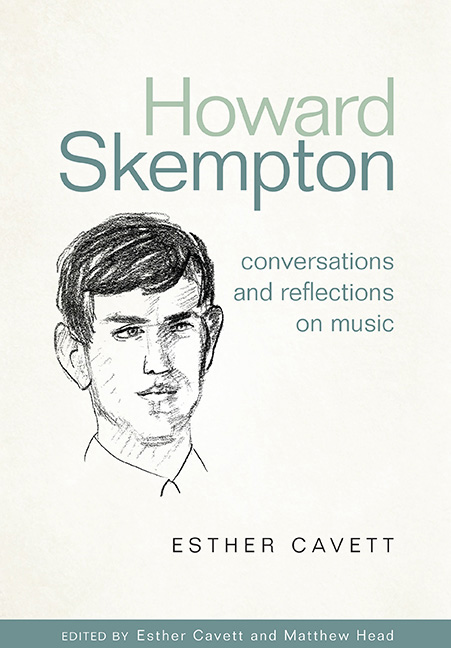Book contents
- Frontmatter
- Dedication
- Contents
- List of illustrations
- List of contributors
- Preface
- Roles and acknowledgements
- Introduction
- Editorial conventions
- Timeline
- Chapter One Histories
- Chapter Two Influences
- Conversation Two: The music from A Humming Song (1967) to Lento (1990)
- Reflection Two: Skempton and experimentalism
- Chapter Three Pattern and shape
- Interval: Previously unpublished manuscripts
- Chapter Four Influencing
- Chapter Six Narrative and closure
- Appendix One Authorized worklist
- Appendix Two Discography of first commercially distributed recordings
- Select bibliography
- Index
Reflection Two: Skempton and experimentalism
from Chapter Two - Influences
Published online by Cambridge University Press: 10 September 2019
- Frontmatter
- Dedication
- Contents
- List of illustrations
- List of contributors
- Preface
- Roles and acknowledgements
- Introduction
- Editorial conventions
- Timeline
- Chapter One Histories
- Chapter Two Influences
- Conversation Two: The music from A Humming Song (1967) to Lento (1990)
- Reflection Two: Skempton and experimentalism
- Chapter Three Pattern and shape
- Interval: Previously unpublished manuscripts
- Chapter Four Influencing
- Chapter Six Narrative and closure
- Appendix One Authorized worklist
- Appendix Two Discography of first commercially distributed recordings
- Select bibliography
- Index
Summary
Howard Skempton came of age in a schismatic moment in British new music. He began his training privately with Cornelius Cardew in the summer of 1967, and was closely involved both with Cardew's Scratch Orchestra (of which he was a founding member in 1969) and the experimental music classes at Morley College out of which the Scratch Orchestra evolved. In 1967, though, when Skempton started studying with him, Cardew's attraction was not as the father of Scratch, nor as the politically committed artist he later became, but as a figure who bridged the European avant garde and American experimentalism (Harris, 2013, p. 53).
Perhaps it's more accurate to say that Cardew simply maintained the long-standing connections between these two scenes. In the process, though, he ended up presiding over the development of a distinctly English experimentalism by the early 1970s. Indeed, he oversaw the growth of “experimentalism” as a distinct category in British musical discourse, one that only became relatively stable with the publication of Michael Nyman's 1974 book Experimental Music: Cage and Beyond (see Harris, 2013, pp. 4–5). Skempton's story is bound up with this development. But it also does much to suggest the precariousness and contingency of the category of experimentalism, and the stakes involved in placing oneself within it.
Cardew's fluid approach to American new music and the European avant garde is evident from the early days of his lessons with Skempton. Their first meeting, after all, was at a Stockhausen concert, and Cardew, who had worked as Karlheinz Stockhausen's assistant in Cologne, introduced Skempton to him only to find they had already been in contact by letter (Tilbury, 2008, p. 339; C1 §42). After Skempton's first lesson with Cardew, meanwhile, he reports leaving “armed with a pile of La Monte Young scores” (Tilbury, 2008, p. 339); Morton Feldman, as we've seen, was already a model for Skempton before his lessons began, but Cardew would have encouraged this interest as well.
Throughout the 1960s, Cardew had championed both Young's and Feldman's music. He had first met Young at Darmstadt in 1959 (Stockhausen was again the link, as Young had travelled there to work with him).
- Type
- Chapter
- Information
- Howard Skempton: Conversations and Reflections on Music , pp. 57 - 66Publisher: Boydell & BrewerPrint publication year: 2019



